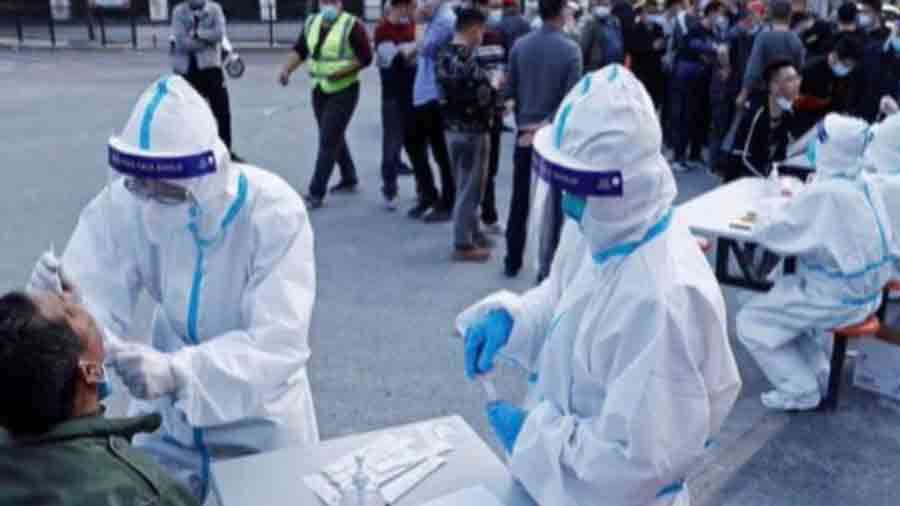A top Shanghai official on Thursday acknowledged shortcomings in the local government’s handling of a surge of coronavirus cases, a rare admission of mistakes in China’s economic and financial powerhouse.
Officials in the metropolitan area of 26 million have imposed tough restrictions that have rattled many, first locking down individual neighbourhoods before reversing course and imposing a staggered lockdown across the city that they said would allow them to conduct mass testing.
In response, multiple banks and investment companies in the country’s financial hub are keeping traders and fund managers at their offices to keep business going. Companies provided foldable beds, sleeping bags and other items to staff members camping out at work.
The lockdowns prompted panic-buying as people rushed to get supplies before they were confined to their homes, and some have complained online that they are unable to get some essentials. Some residents, including people who say they need dialysis and chemotherapy, have said that they have had trouble receiving medical assistance while under lockdown.
The official, Ma Chunlei, the deputy secretary general of Shanghai’s government, called the surge in omicron cases the city’s “toughest challenge”, saying officials were not “sufficiently prepared for the dramatic increase in the number of infected people.”
“We sincerely accept everyone’s criticism and are working hard to improve,” Ma said at a news conference.
He did not elaborate or address specific complaints.
Shanghai’s health commission on Thursday reported 5,653 confirmed new cases the previous day, of which 5,298 were asymptomatic. Over 30,000 cases have been identified in the past month, up from just a handful.
China’s case numbers are low compared with many countries, especially when it comes to serious illness and death. But the central government is pushing officials across the country to stamp out the virus, deploying measures that are among the world’s strictest.
Criticism of the Shanghai government has ballooned since the omicron outbreak began this month. On Tuesday, a post went up on China’s popular social media site Weibo for people to request help.
It was not clear who set up the post. As of Thursday, it had received 200 million views.
(New York Times News Service)

